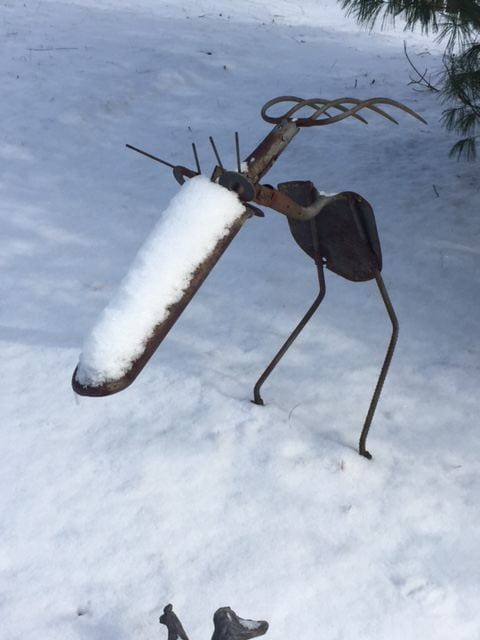OSUE Brown County Master Gardener Volunteer
Rain, Snow, Frigid Temperatures and then a spike to 50 degrees – welcome to Ohio. Are you thinking about involving some young gardeners this year? You still have a chance to design your home garden to match your family’s personalities and needs. Give your children a voice in your garden’s design and plantings to help generate interest and a lifelong passion for nature. It will also create memories and teach cooperation, patience, and responsibility. Brainstorm together and don’t be afraid to use your imagination!
Get out your old magazines, seed catalogs and art materials. Start by creating poster board size version of the garden. Label structures and identify desired flowers and plants. This is your family’s time to “Dream Big” as you share visions of a perfect garden. Young children might request castles, waterfalls or other water features. Be sure to listen to all ideas and take notes. There might be a possibility of creating a smaller or alternative version of those ideas!
When it comes to implementing ideas and making an official plan, you may need to scale it down. Have you chosen your site? Be sure to place the garden/play area where you can see it from your kitchen window or other rooms you spend a lot of time in. Look up and down. Before you dig, be aware of any power lines, pipes, septic systems, or other existing limitations. Consider where there is the most sunlight and the most shade; you will need to choose plants accordingly.
Now you need draw a model of your garden space. Sketch the shape onto graph paper, trying to keep it to a scale using one square equal to one foot. Add paths or any permanent structures that exit in your space. Next draw any structures you’d like to include. The last step will be choosing plants that best accommodate your design, space and budget.
No space for a castle, moat, or climbing rock? Here are a few ideas that could generate excitement and joy in your garden! 1) Plan a sunflower house by planting sunflowers in a square to form a “room”, 2) Using five or more poles or large branches bound at the top and grow gourds, beans, cucumbers or miniature pumpkins, 3) Create a tunnel: insert 8-foot poles every 3 feet along both sides of a path; lash horizontal poles at 2-, 4-, and 6-foot heights; and then plant and train vines along this corridor, 4) Use a simple platform to create a stage or gathering place for kids’ outdoor lunches, 5) instead of a water feature, create a shallow bird bath, 6) arrange 4-5 tree stumps at varying heights (not too tall) for children to step across or move throughout the yard, or 7) use a shallow children’s pool as a circular raised garden bed and then try planting in unique shapes and patterns!
Remember to consider your plants needs: Sunlight, Access, Spacing and Water. Do your research!
One of my favorite garden bloggers, “Gardenista” summed up how I feel about involving children in the garden. She says, “If you’ve ever watched a child pull a fresh carrot from the ground and eat it, you will know what sheer surprise and delight look like. There are countless benefits to children when they help plant and grow fruits and vegetables. Some favorites: gaining an interest in eating vegetables, appreciating where their food comes from, increasing focus and attention, teaching delayed gratification, disconnecting from technology, and creating future stewards of the land. Let’s give thanks this year to children everywhere who get dirty, try a spicy radish for the first time, and watch a ladybug meander up their arm.
Don’t forget to mark your calendars for our garden seminar on Wednesday, February 19, 2020 at the Mt. Orab Campus of Southern State Community College. Christine Tailer will be talking about Starting Seeds with Float Beds. All seminars are free and open to the public and start at 7:00 p.m. in Room 208. Remember, if the Mt. Orab campus is closed due to bad weather, the seminar is cancelled.
It’s time to start planning your garden! Spring is around the corner!
